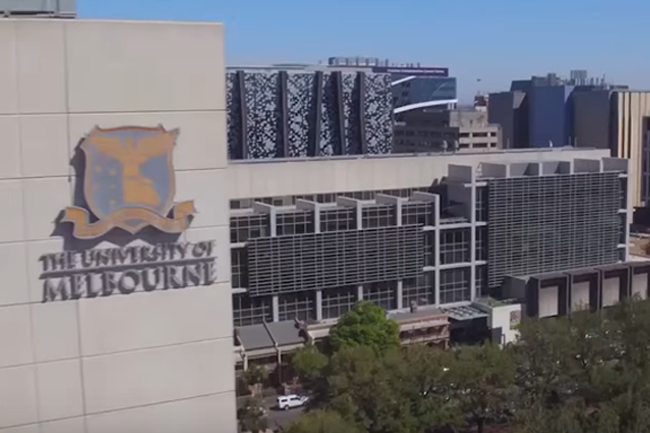As scam losses in Australia reach $8 billion, pressure mounts on the Government to hold banks accountable and launch a fresh royal commission, writes Dr Kim Sawyer.
WHEN A GOVERNMENT makes a mistake, who pays for the mistake, the government or the victims? Evidently, the answer depends on which government is in power and who the victims are. Recent history shows the importance of who is in power and who can extract political capital. Let us consider some examples.
The Albanese Government recently agreed that taxpayers would fund another $549 million to compensate victims for the Robodebt scheme, bringing the total cost of forgiven debts and compensation from class actions to $2.4 billion. Robodebt was conceived in 2015 by matching the Australian Tax Office (ATO) data with the Department of Human Services (DHS) data.
DHS got ATO information and compared it to what welfare recipients declared to the DHS. When the averaged fortnightly amount exceeded the income a recipient was entitled to receive before reduction of benefit, it was assumed the recipient had been overpaid, a flag was raised and steps were taken to recover the debt.
Robodebt started in 2016 and continued for four years. Two judicial reviews by the Federal Court in 2019 persuaded the Morrison Government that averaging recipient income could not establish their debt. There had been a systemic failure. The Government scrapped the scheme, reimbursed 381,000 people the $746 million owed and wrote off the debts of $1.75 billion.
After the Albanese Government was elected in May 2022, it set up a Royal Commission which found the scheme to be unlawful and unfair, targeting the vulnerable and making them feel like criminals.
Robodebt was like the British Post Office scandal. A systemic failure was recognised too late and then covered up by shifting liability onto the victims. Through appeals to the media and courts, victims were able to get redress. In the case of the British Post Office, it was the 2024 ITV documentary Mr Bates vs The Post Office that shifted opinion in favour of sub postmasters. What helped was a change of government. UK Labour extracted political capital.
And it was the same for Robodebt. Welfare victims were helped by the change of government. Labor extracted political capital. The Albanese Government went to the 2022 Election promising a royal commission.
The irony is that Robodebt was not the only scheme where welfare recipients were unlawfully targeted for debt recovery. Income apportionment, making assumptions about daily earnings when pay cycles did not agree with welfare income, has operated since the 1990s. The scheme was deemed unlawful by the Commonwealth Ombudsman in 2023. The Department of Social Security is reviewing 160,000 debts with a median of $330. The Government has announced a $300 million package of reparations.
Systemic failure is common and requires government to intervene.
Evidently, this logic does not apply to scams, or so it seems. On 6 February 2020, Delia Rickard, the Deputy Chair of the Australian Communications Consumer Action Network (ACCAN), wrote to the Australian Securities and Investments Commission (ASIC) team reviewing the ePayments Code, recommending a Confirmation of Payee system that was to become compulsory in the UK from March 2020.
Confirmation of Payee has reduced fraud in the Netherlands by 81% and in the UK by 35%. The Australian Competition and Consumer Commission (ACCC) recommended Confirmation of Payee in 2020 and again in 2022, but successive governments did not listen, deferring to the Australian Banking Association (ABA) and its CEO, Anna Bligh, who opposed Confirmation of Payee.
Confirmation of Payee is now being rolled out at a cost of $100 million, a fraction of the combined bank profits of more than $40 billion and assets of more than $200 billion. The advertisements are everywhere, but no one acknowledges that it could have been done five years ago.
Since 2022, ASIC has reported scam losses in Australia amounting to $7.9 billion. Since 30% of scams go unreported, real losses were higher. In 2023, scam losses were $34 per capita in the UK, $45 per capita in the U.S. and in Australia, the low estimate is $100 per capita; some estimates are as high as $200 per capita.
Australia was a target. One reason was the failure to implement Confirmation of Payee. The Government made a mistake, but no one is being held to account. The Government has consistently opposed reimbursement, or any reimbursement formula. Reimbursement is at the discretion of the banks, who can discriminate as they choose.
Since 2019, UK banks have been reimbursing scam victims on a voluntary basis at an average rate of 67%, well before a mandatory reimbursement scheme was introduced in October 2024. But not in Australia, where victims of large scams are reimbursed nothing at all.
The money stolen by scammers is often laundered through mule accounts in Australian banks. The Anti-Money Laundering Act of 2006 requires AUSTRAC to prosecute banks for not monitoring money laundering. In 2018, the Commonwealth Bank of Australia (CBA) was penalised $700 million for serious breaches of anti-money laundering laws because it did not monitor effectively over 50,000 transactions.
In 2020, Westpac was fined $1.3 billion for breaching the laws, with an admission that it had failed to properly report over 19.6 million international transfers amounting to over $11 billion.
In both cases, there was no specific proof of money laundering. Yet in most scams, where there is actual proof of money laundering, AUSTRAC will not prosecute the banks and the police are not able to prosecute the banks. Scam victims are paying the price for money laundering.
In May, I wrote to new Assistant Treasurer Daniel Mulino, putting the case that banks should be liable for mule accounts and money laundering. I have proposed a reimbursement fund that could be funded by AUSTRAC prosecutions of banks for not monitoring money laundering. Mulino did not respond, as the previous Assistant Treasurer hadn't, either.
The media has published many stories on scam victims without ever asking the core questions. Why aren’t banks being prosecuted for money laundering when there is proof of laundering? Why did the government listen to the Australian Banking Association and not to the ACCC? Why aren’t victims who have incurred large scam losses entitled to any reimbursement at all? Why are the media silent?
The Banking Royal Commission that reported in 2019 related to many issues, inter alia:
- that ANZ charged 500,000 home loan customers the incorrect interest rate for more than ten years;
- that CBA rewarded brokers for encouraging customers to enter into larger home loans and for longer terms than needed;
- that up to 15 per cent of all home loans approved did not meet NAB's standard criteria for valuation, serviceability and document verification; and
- that Westpac, St George Bank, Bank of Melbourne and RAMS engaged in actual or potential misconduct and conduct below community standards and expectations relating to home loans and credit cards.
There was a systemic failure, yet the ABA had opposed the Royal Commission.
Given what has happened with scams, there should be another banking royal commission. The scale of scam losses is far greater than losses revealed in the previous one. However, just as vested interests opposed the Royal Commission, they will oppose another one.
Unlike before, there is no political capital to be extracted by the major parties. With few exceptions, the politicians have decided that banks are too big to fail; that they are to be protected at all costs; and that the bank shareholders and institutions have the highest priority. The Government has thrown the victims under the bus.
Dr Kim Sawyer is a senior fellow in the School of Historical and Philosophical Studies at the University of Melbourne.
 This work is licensed under a Creative Commons Attribution-NonCommercial-NoDerivs 3.0 Australia License
This work is licensed under a Creative Commons Attribution-NonCommercial-NoDerivs 3.0 Australia License
Support independent journalism Subscribe to IA.

Related Articles
- Banks, mules and government fools let scammers run free in Australia
- Why new scam laws might actually bite
- Australian victims on their own in 'honey pot' for scammers
- Pillow scams, AI and the Russians














